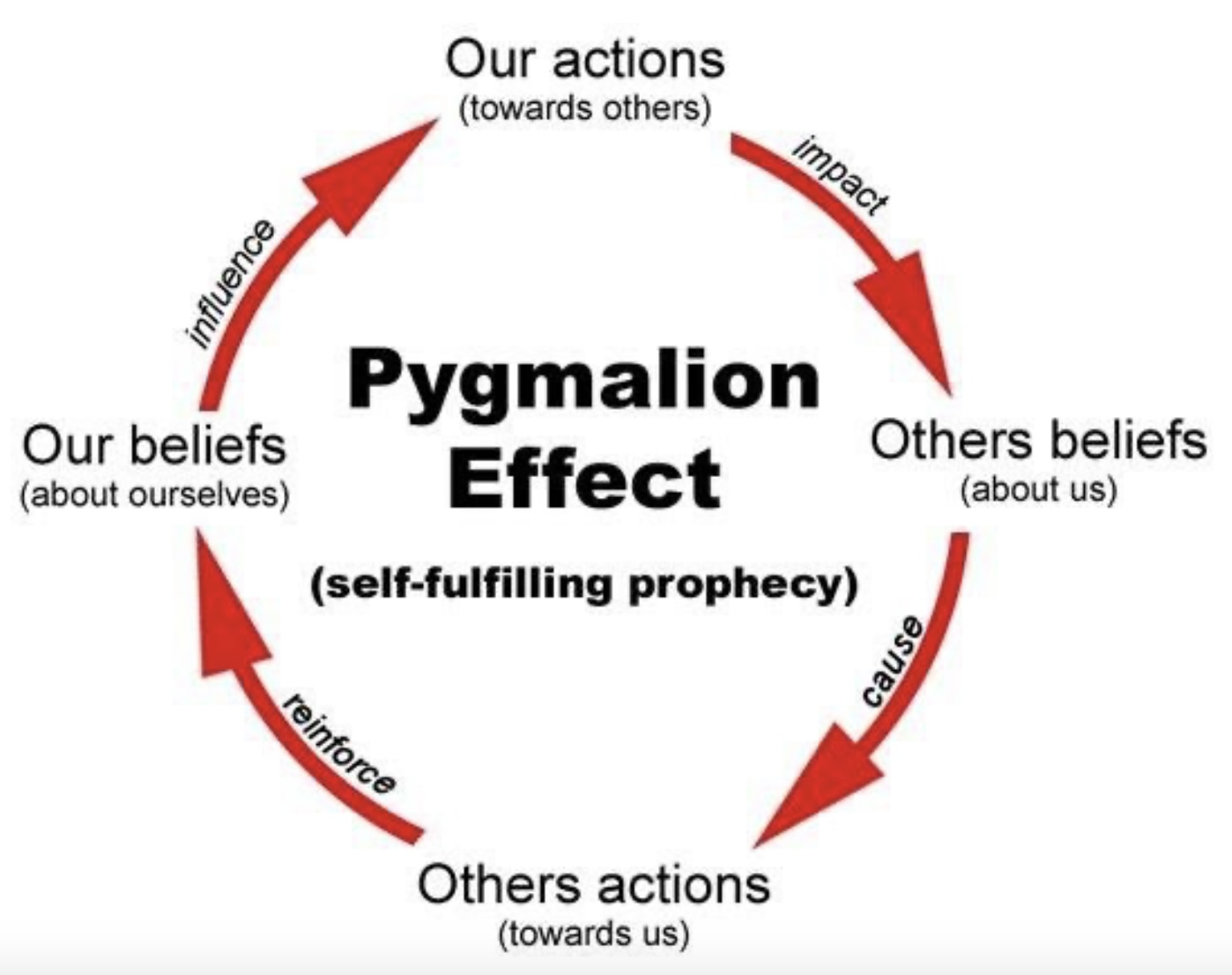 As leaders, our beliefs about our team’s abilities can become powerful self-fulfilling prophecies. This phenomenon, known as the Pygmalion Effect, demonstrates that higher expectations often lead to improved performance. When we believe in our team, our actions align with this belief, creating a cycle of positive reinforcement.
As leaders, our beliefs about our team’s abilities can become powerful self-fulfilling prophecies. This phenomenon, known as the Pygmalion Effect, demonstrates that higher expectations often lead to improved performance. When we believe in our team, our actions align with this belief, creating a cycle of positive reinforcement.
Why It Matters
High expectations drive results. When leaders maintain high expectations, they tend to provide better support and assign more challenging opportunities. In turn, this leads to greater fulfillment, significant engagement, and a higher level of performance. Additionally, when team members feel believed in, they are more motivated and likely to exceed expectations.
The Cycle of Positive Reinforcement
The Pygmalion Effect operates through a four-stage process:
- Our beliefs shape our conduct towards team members.
- Our conduct influences their beliefs about themselves.
- These beliefs impact their actions.
- Their actions reinforce our initial beliefs, completing the cycle.
Understanding this cycle is crucial for leaders who want to harness the power of positive expectations. By intentionally setting high expectations and consistently demonstrating belief in our team’s abilities, we can create an environment where team members thrive.
The Science Behind It
The Pygmalion Effect has been observed in various settings, from classrooms to workplaces. Research by Eden and Shani in 1982 demonstrated that Israeli Defense Forces instructor expectations enhanced trainee performance in military settings. This study highlights the profound impact that leader expectations can have on performance.
Create an Environment of Positive Expectations
To leverage the Pygmalion Effect effectively, leaders should focus on practical steps that foster a culture of high expectations and support:
- Set High, Yet Achievable Expectations: Clearly define challenging but attainable goals for your team. This helps team members understand the targets they need to meet and motivates them to strive for success.
- Communicate Confidence: Regularly express your belief in your team. When team members know their leader believes in them, they are more likely to perform at their best. Consistent reinforcement helps team members internalize these positive expectations, leading to sustained performance improvements.
- Provide Necessary Support: Ensure your team has the tools and guidance they need. This support can come in the form of resources, training, and simply being available for questions and advice.
- Provide Growth Opportunities: Assign projects that stretch your team’s capabilities. By pushing them out of their comfort zones, you will help them grow and develop new skills.
- Offer Constructive Feedback: Frame constructive criticism as ‘feed forward’ for growth and improvement. It should be seen as an opportunity for development.
- Lead by Example: Model a growth mindset by taking on challenges yourself. Show your team that you are committed to personal and professional growth.
- Celebrate Progress: Recognize not just outcomes, but also effort and incremental improvements. Highlighting the journey as much as the destination encourages a culture of continuous improvement.
Reflection for Leaders
It’s essential for leaders to reflect on their own biases and perceptions. Recognize and challenge any preconceived notions or stereotypes you might hold about team members. How do you view your team members’ potential? Are you inadvertently limiting growth by underestimating capabilities?
By regularly assessing and adjusting your mindset, you can ensure you are providing the best possible environment for your team to succeed.
Broader Implications for Leadership
The Pygmalion Effect serves as a powerful reminder for leaders in any environment where motivation and performance matter. By fostering high expectations and encouraging belief in team members, leaders can create a self-fulfilling prophecy of success.
Belief isn’t just a feeling; it’s a strategic approach to success. By fostering a culture of high expectations and support, you can unlock your team’s potential and drive exceptional outcomes.
Your Turn
How will you leverage the Pygmalion Effect to create a more motivated, high-performing organization?